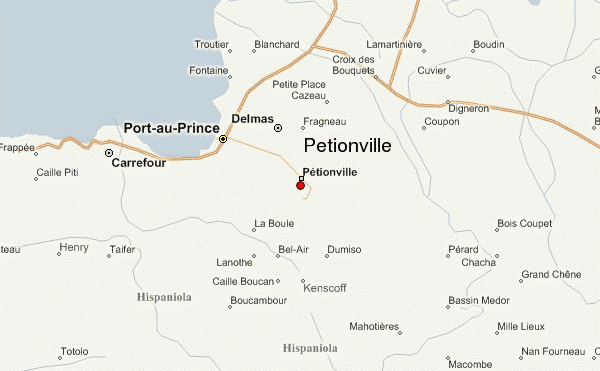1. The current financial crisis. For the last two years, the exchange rate hasn't changed too much. With few exceptions, the Haitian Gourde has been gradually declining in value over the past decade(s), but this past month has seen a major, sharp decrease in value.
This graph, taken from www.xe.com, shows how the Gourde (HTG) has changed in value over the last month, as compared to 1 USD (the higher the graph goes, the more Gourdes it takes to make $1). Life for Americans in Haiti is getting cheaper and cheaper, and Haitians are having to increase their prices to get by.
This graph shows the value of the HTG compared to the USD over the past 10 years. See that sharp increase at the end?
See, I don't know enough about economics to speak intelligently about what's happening. But, if this were the US's financial crisis, the entire country would be up in arms and news sources would be reporting most recent exchange rates on the hour. A simple Google search of "US financial crisis 2015" would deliver thousands of results where one could learn about said crisis, why it's happening, and what we can expect to see next. Go ahead, search "Haiti financial crisis 2015." Nothing comes up except grim reports of how little Haiti has improved since the 2010 earthquake.
Edit 7/29: Thank you so much, Stephanie, for sending me this article (published in the Miami Herald the same day I wrote my blog post) about this problem. Read here.
2. The Dominican Republic. The situation in the DR is getting some media exposure, but it seems to be dying down. Meanwhile, Dominican people of Haitian descent as well as Haitians who have illegally emigrated to the DR, are arriving in Haiti by the thousands. The below map (http://reliefweb.int/sites/reliefweb.int/files/resources/snapshot_migrant_13_juillet_2015_en.pdf) shows where these deportees are arriving. As of July 9th, an estimated 19,138 individuals had arrived in Haiti via official and unofficial entry points. See Hinche? Approximately 3 hours' drive from the border, Hinche is likely to see major growth in the coming months as more deportees make their way across the country. However, in a country with an estimated 40% unemployment rate, an influx of uprooted Spanish-speakers is going to throw one more challenge at the struggling economy.
3. Disease outbreaks. According to MSPP, the Haitian Ministry of Health, Dengue virus does not exist in Haiti. According to the American CDC, all four strains of Dengue are present in Haiti. And, approximately 25% of the volunteers who have spent time in the MFH house over the past few months have tested positive for Dengue or had Dengue-like symptoms. It seems like a handful of Haitian staff and their families have gotten it, too. I don't want to claim that there is definitely an outbreak in the Central Plateau right now, but it made me realize that any outbreak that doesn't directly affect Americans isn't going to be published. It may not ever be identified. Since MSPP claims there is no Dengue here, there are no Dengue test kits (at least in the area) and therefore obviously no one would be identified as having the Dengue antibody in their system.

4. History. There are countless books about the rich history of Haiti, don't get me wrong. The Wikipedia page alone gives a pretty clear idea of how many times the world's first black republic has been crapped on (pardon my language, but it's totally true). That said, there is so much history that is simply lost because it isn't shared or written down. This past weekend, the In-Country Staff and I went to Petionville (the wealthier suburb of Port-Au-Prince), where we chatted with the owner of the hotel where we stayed. He shared with us stories of people he knew who have been tour guides since the 50's, who have experienced all of Haiti's ups and downs, including the Duvalier regime. It shocks me to think how much is happening here and will never be written down.



